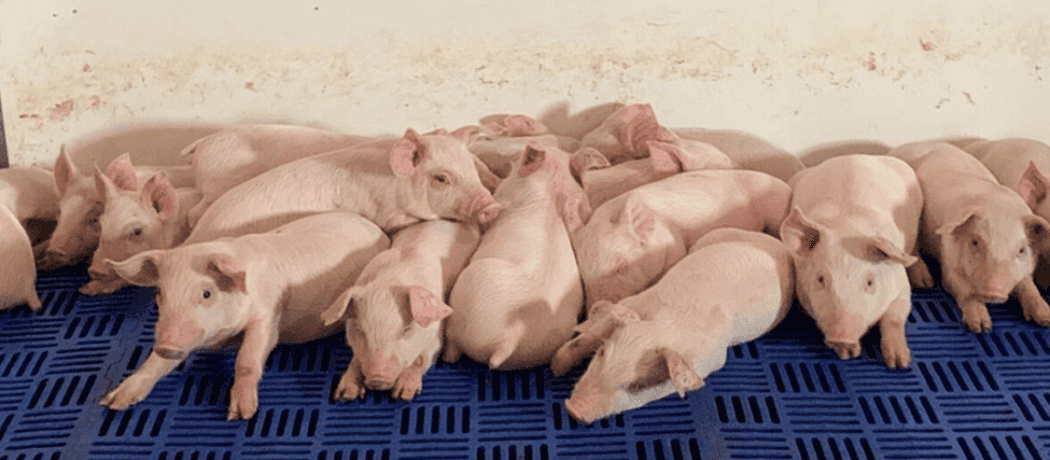
Student Research Opportunities at OVC: Interview with Jenny (Yuan) Lin
April 12, 2024
As a leading research-intensive institution in Canada, the University of Guelph is committed to offering students immersive learning experiences including opportunities to actively engage in research projects alongside esteemed university research teams.
 One such student is Jenny (Yuan) Lin, a phase two Doctor of Veterinary Medicine (DVM) student. Lin contributed to swine research in Dr. Vahab Farzan’s lab within the Department of Pathobiology at the Ontario Veterinary College (OVC). Following the completion of her summer research Lin presented her findings at the American Association of Swine Veterinarians (AASV) Annual Meeting (student seminar) and earned 3rd place among all student presenters.
One such student is Jenny (Yuan) Lin, a phase two Doctor of Veterinary Medicine (DVM) student. Lin contributed to swine research in Dr. Vahab Farzan’s lab within the Department of Pathobiology at the Ontario Veterinary College (OVC). Following the completion of her summer research Lin presented her findings at the American Association of Swine Veterinarians (AASV) Annual Meeting (student seminar) and earned 3rd place among all student presenters.
We connected with Lin to learn more about her experience.
Can you please explain what your research was about?
My project focused on characterizing E. coli contributing to post-weaning diarrhea in Ontario pigs. E. coli can be a normal part of the gut microbial community, but it can also contribute to diseases such as post-weaning diarrhea (PWD) when it gains and expresses genes for virulence factors, which allow them to attach to intestinal cells and induce diarrhea. Because of how these virulence factors contribute to disease, they are potentially valuable targets for the development of control strategies for PWD. The problem is that the specific combination of virulence factors found in E. coli can be very variable between different populations of pigs and even within the same population over time. This means that there are simply too many moving targets to aim for. That's where this project comes in. We were looking at what specific virulence factors were found in E. coli isolated from Ontario pigs, as well as their distribution between pigs with and without PWD.
How did your supervisor/research team make it a positive/valuable experience?
My supervisor and research team (Dr. Vahab Farzan, Corinne Schut, and Kim Giraldo) were awesome in making sure that I had the support and training I needed to succeed in this project. They invested a lot of time in teaching me the techniques, answering my questions, and helping me practice my presentations. They also made sure that I had to opportunity to experience and learn lots of new things throughout the summer beyond my project (such as visiting farms and practicing clinical techniques, learning other lab techniques from other projects, touring the new Ontario Swine Research Centre, etc.). On top of all that, they were also all super lovely people to spend time with and to work with.
How were you selected to speak at the AASV and what was that experience like?
An abstract of this project was submitted for consideration for the AASV Annual Meeting (student seminar) and it was chosen for an oral presentation. It was an amazing experience not only to share this project with others, but also to meet other students and vets and to hear about the amazing research that they've been doing.
How will your research and speaking experience benefit your future studies at OVC and/or your career after graduation?
This was my first taste of research during my academic career, and it has really whetted my appetite for it. I am interested in pursuing a career in veterinary pathology and am hoping to stay in academia where I can potentially grow my experience with research.
In addition to graduate students conducting research as part of their academic programs, around 50 undergraduate and DVM students participate in summer research beyond their curriculum through the OVC’s Summer Career Opportunities and Research Exploration (SCORE) program, which is celebrating its 25th year.
To learn more about available student research opportunities at OVC, visit the OVC Research Hub.
.png)